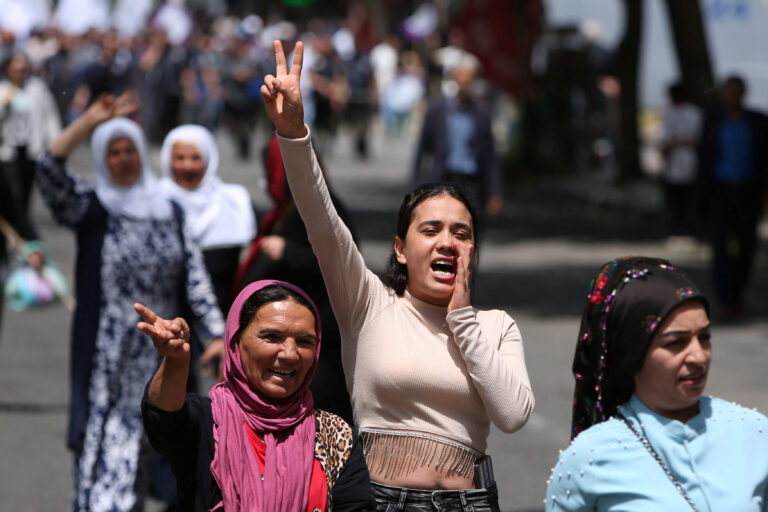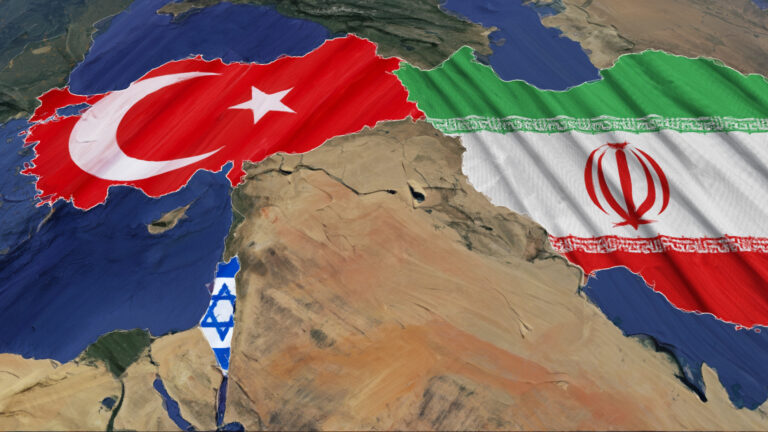At a demonstration last Thursday (12 January) in front of Stockholm’s historic city hall building, members of the Rojava Committee, a group associated with the Kurdish Workers’ Party (PKK), hung an effigy of Turkish President Recep Tayyip Erdoğan from a lamp post. In a post later shared on social media, the group released several videos and pictures of the effigy with the caption: “History has shown how dictators meet their ends. Therefore, Mr Erdogan, for the sake of everyone, use your chance now and leave so you don’t end up upside down in Taksim Square.” Sweden has announced that they will not pursue criminal charges against the demonstrators following the incident.
The PKK is classified as a terrorist organization by Turkey as well as several other countries including the United States and European Union, having been involved in separatism and sectarian fighting concentrated in southeastern Anatolia throughout the 1990s and sporadically since. Sweden hosts a large number of immigrants of Kurdish origin, and has been accused by Turkey of harboring members of the PKK as well as the YPG, a Kurdish militia that has been active in Northern Syria throughout the Syrian Civil War. Due to Sweden’s alleged support for these groups, Turkey has stood in the way of the country’s ongoing application to join NATO. Sweden along with Finland, which has also been accused of harboring Kurdish militia members, began their application process to join NATO in spring of 2022 following Russia’s invasion of Ukraine in February of last year. While the countries’ applications have been accepted by all NATO members, they have yet to be ratified by Turkey and Hungary, as these two countries continue to stand in the way of full accession.
Last week’s event at the Stockholm city hall is likely to present yet another hurdle to Sweden’s accession to NATO. Following the effigy incident, Swedish prosecutor Lucas Erikssin announced in the local Aftonbladet newspaper that the Rojava Committee demonstrators would not face charges for their display of the Erdoğan effigy, saying such demonstrations are permitted under Swedish law:
“I received this criminal complaint alleging an insult [by Rojava demonstrators], but I do not see anything severe enough to constitute an insult. That’s why I decided not to start a preliminary investigation.”
Expressing solidarity with the Swedish position, Speaker of the Finnish Parliament Matti Vanhanen announced on Monday: “We stress that in Finland and in Sweden we have freedom of expression. We cannot control it.”
Despite Swedish inaction, the incident received major attention in Ankara, where Sweden’s ambassador to Turkey was summoned to the Turkish Foreign Ministry. President Erdoğan’s lawyer Hüseyin Aydın, meanwhile, filed a criminal complaint with the Ankara Attorney General’s office. The Attorney General later announced that an investigation related to the criminal complaint had been initiated.
Following a surge in public support for NATO accession last spring, Sweden announced its membership application on 17 May 2022. Despite voicing early resistance, Turkey announced in June that it would support Sweden’s membership bid. The unexpected change in tone came after a memorandum signed by Turkey, Sweden, and Finland agreeing to address Turkey’s concerns and move forward with the accession process. Despite this, Ankara has since failed to ratify either country’s accession, arguing that its concerns regarding arms exportation and harboring of alleged terror groups in the two Nordic states have not been sufficiently addressed. Yesterday (January 16), President Erdoğan announced that the two countries must extradite a total of 130 alleged terrorists in order for their membership applications to proceed. The requested extraditions include many Kurdish militants as well as those believed to be associated with 2016’s failed coup d’etat attempt.
Turkish Foreign Minister Mevlüt Çavuşoğlu will travel to Washington, D.C. this evening (January 17) where he will meet with this counterpart, US Secretary of State Antony Blinken. Among other issues, the two are expected to discuss the NATO membership applications from Sweden and Finland.















